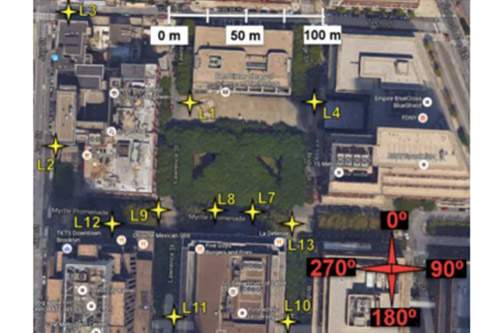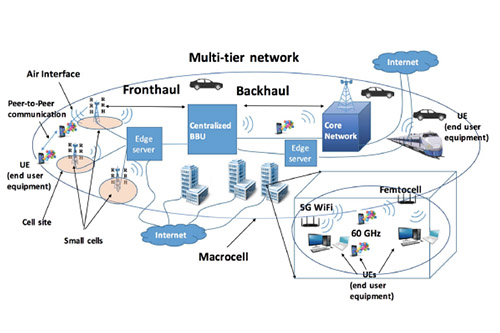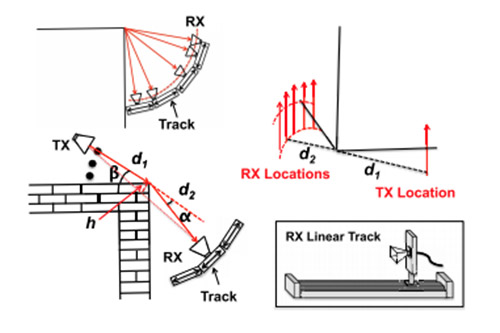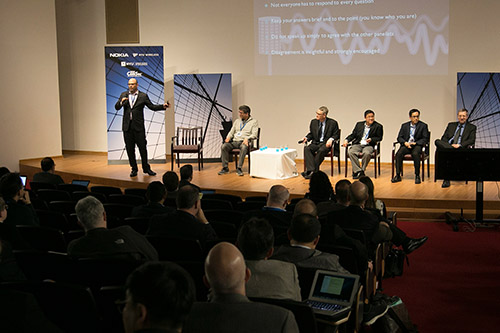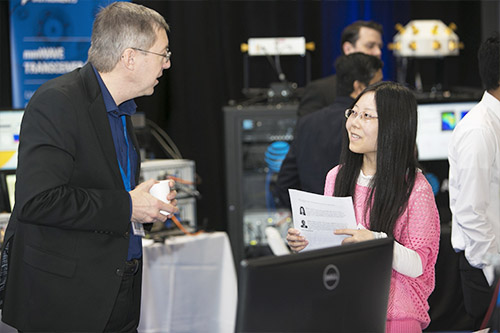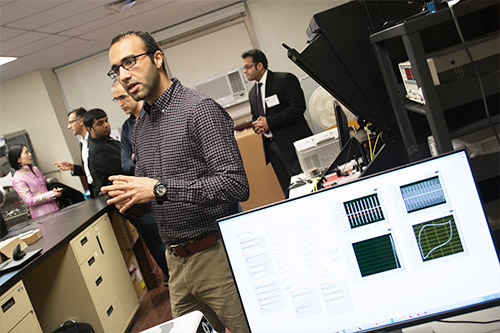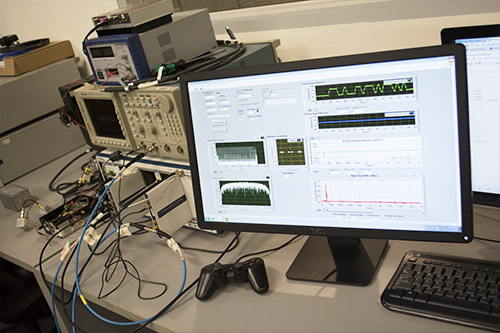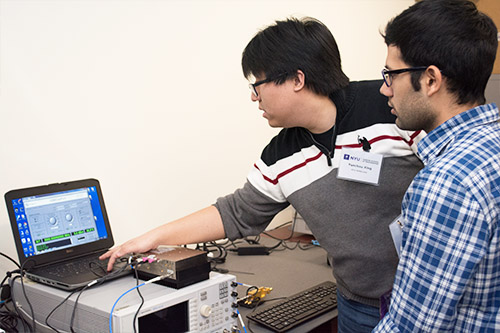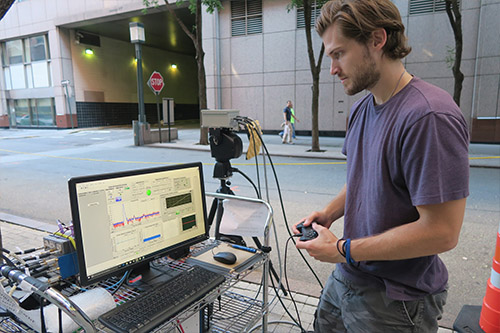All Eyes On 6G: NYU Tandon Wins Spot in DARPA Consortium to Jumpstart Wireless Innovation
BROOKLYN, New York, Wednesday, May 9, 2018 — While fifth-generation (5G) wireless technologies and protocols are still in development, researchers at the NYU Tandon School of Engineering are reaching even further into the future as partners in ComSenTer, a newly formed hub for advanced wireless and sensing research founded by a consortium of industrial participants and the U.S. Defense Advanced Research Projects Agency (DARPA).
In a highly competitive selection process, NYU Tandon was chosen to join the lead institution — University of California, Santa Barbara — in this effort. Other researchers are from University of California, Berkeley; University of California, San Diego; Cornell University, and the Massachusetts Institute of Technology. ComSenTer is the latest initiative in the Joint University Microelectronics Program(JUMP), a sweeping, five-year, $200 million industry/academia partnership to accelerate innovation in microelectronics-based technologies, including wireless communications.
Sundeep Rangan, a professor of electrical and computer engineering at NYU Tandon and director of the research center NYU WIRELESS, will oversee New York University’s participation in ComSenTer. The NYU Tandon team will lead all the systems research, specifically developing end-to-end applications for high-speed communications and imaging systems. Their work is supported by a $1.9 million grant from Semiconductor Research Corporation (SRC).
From the time Samuel Morse invented the telegraph and Morse Code, NYU faculty members have been pioneers in communication technologies, always developing next-generation devices, and particularly expanding the wireless frontiers far beyond telecommunications, opening new possibilities in medicine, media, and more,” said Dean Katepalli R. Sreenivasan. “It is only appropriate, and is a testament to our history of excellence, that NYU Tandon was chosen as a partner in this most recent effort of bringing future generations of wireless into focus.”
ComSenTer researchers are developing technologies for the high gigahertz (GHz) and terahertz spectrum where the combination of vast bandwidth and miniature wavelengths present the potential for developing compact, high-dimensional antenna arrays that both circumvent traditional transmission issues, like blocking and scattering, and enable imaging and sensing capabilities and transmission speeds that are unimaginable today. 5G wireless systems are already moving to millimeter wave (mmWave) bands as high as 90 GHz.
ComSenTer will build devices and systems as high as 500 GHz, which could form the basis of future 6G wireless networks, as well as advanced radar and sensing systems. This revolutionary infrastructure will support fully immersive systems including augmented and virtual reality, as well as transform autonomous vehicle and smart-city technologies.
This is the second recent award for NYU WIRELESS and NYU Tandon faculty in the area of wireless innovation and development. The National Science Foundation last month announced that NYU researchers will team with colleagues from Rutgers and Columbia to establish COSMOS, a major testbed for 5G wireless development and deployment in New York City.

 2026 Open House
2026 Open House 2025 Brooklyn 6G Summit — November 5-7
2025 Brooklyn 6G Summit — November 5-7 Sundeep Rangan & Team Receive NTIA Award
Sundeep Rangan & Team Receive NTIA Award